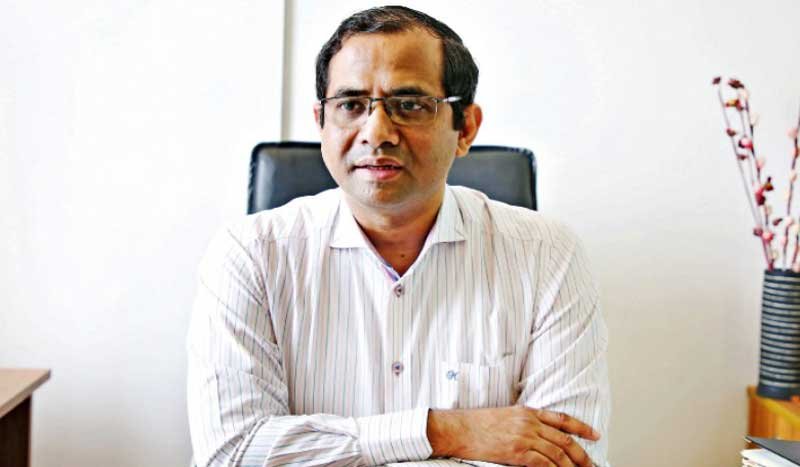Published in New Age on Friday, 21 September 2018

Says Khondaker Golam Moazzem, research director, Centre for Policy Dialogue as he talks to New Age senior staff correspondent Jasim Uddin
The proposed minimum monthly wage, Tk 8,000, for readymade garment workers is inadequate to meet their cost of living if various basic needs and the rate of inflation are considered, says Centre for Policy Dialogue research director Khondaker Golam Moazzem.
The structure of proposed wage is also weaker than that of previous minimum wages as the portion of basic wage has now become thinner in the latest one, he points out, mentioning that the portion of basic payment has dropped to 51 per cent of total wage from that of 56.6 per cent in 2013 and 60 per cent in 2010.
Workers will get lower amount in bonus, overtime allowance and other payments based on the basic wage, he says.
The overall wage structure, he suggests, requires an upward adjustment before it is finalised for implementation from December so that workers can manage minimum expenditure for livelihood.
Though any decision related to minimum wage should come from Minimum Wage Board, there is scope of government intervention in the issue of upward adjustment of the proposed wage, he says, adding that many of the decisions of wage board have reflection of the government’s view and position.
Minimum Wage Board on September 13 proposed Tk 8,000 as minimum monthly wage for lowest grade workers, up from existing minimum wage of Tk 5,300.
In an interview with New Age, Moazzem on Tuesday said that the government should also invite the representatives of global brands and buyers to discuss how they could help the factory owners in implementing new wage structure through raising the prices of apparel products.
Hopefully, he thinks, global buyers will also come up with announcement of increasing the prices of products as raising the prices of products by few cents will help the country ensure a decent minimum wage for RMG workers.
Rejecting the factory owners’ claim of possible closure of factory and losing export competitiveness, he says that issues such as profitability, competitiveness and productivity should not be tagged with minimum wage of workers who are less paid considering their productivity.
Level of profitability and competitiveness varies factory to factory, he says, adding that CPD has found that implementation of new wage may be difficult only for 10 per cent of factories.
So, he says, it should not be an excuse for owners to pay lower to workers as the government is giving various tax and other fiscal benefits.
Owners, he suggests, should also adopt various mechanisms such as producing high-end product, increasing productivity, introducing modern technology and diversifying products’ base to raise profitability.
According to a study of the CPD, a RMG worker needs on an average Tk 22,435 to meet his or her monthly expenditure for food and non-food items for a 4.4 members family. But it proposed the wage at Tk 10,028 considering the number of earners in a family.
During the interview held at CPD office in Dhaka, he said RMG workers often needed to take loans to meet their monthly expenses as they don’t get competitive salary.
He finds it positive that the minimum wage for workers is being regularly evaluated since 2010.
But, he adds, it is necessary to bring some changes in minimum wage structure to address some ignored areas such as childcare, education allowance and service benefit.
Workers should get allowances at incremental rate based on their skills as well as service benefits at least at the rate of 3 per cent of basics for their future security, he suggest.
For ensuring workers’ welfare, hiking wage is not adequate, he observes and urges the government to take some non-fiscal measures such as arranging accommodation for workers through private developers, education and healthcare facilities adjacent to their workplace.
Such benefit, he thinks, will ease the pressure on living cost of workers.
He argues that though the rate of profit of entrepreneurs is on the decline these days for not raising the prices of products by global buyers, it should not be used as an excuse for depriving workers of their minimum wage who get wage at one of the global lowest rates.
Currently, wage of RMG workers is only $63 per month which is the second lowest after Sri Lanka and even considering the proposed wage which is equivalent to $95 per month, still Bangladesh will remain in the lowest territory of minimum wage compared with other countries.
Minimum wages of only three to four countries including Myanmar ($ 88) and Indonesia ($ 75) will remain lower than Bangladesh.
Moazzem recommends a revision in the structure and representative selection process of wage board to ensure effectiveness, transparency and efficiency in negotiations.
There are allegations that the selected workers’ representatives do not have enough knowledge, expertise and experiences in negotiations to ensure workers’ rights.
Structure of wage board should also be strengthened so that they can discuss the proposal in more structured manner, instead of waiting for government’s instruction, which makes the platform weaker, he says.


